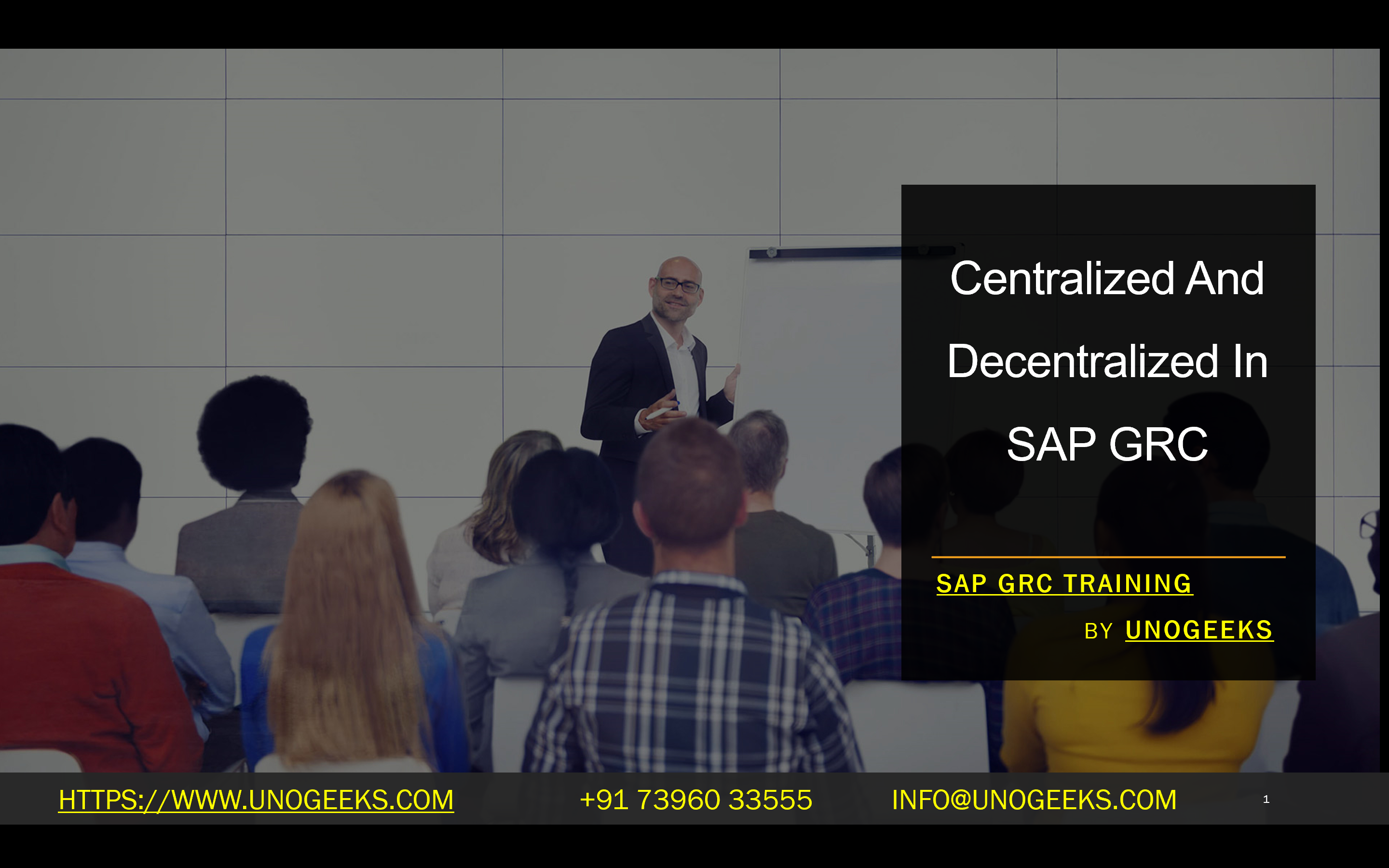Centralized And Decentralized In SAP GRC
Centralized and Decentralized Approaches in SAP GRC: Understanding the Key Differences
Governance, Risk, and Compliance (GRC) are fundamental to any business’s smooth operation and resilience. SAP GRC solutions are designed to streamline these processes, making them more efficient and secure. A critical aspect of GRC implementation is the choice between centralized and decentralized models. Let’s explore these models and how they impact your organization.
Centralized Approach to GRC
In a centralized approach, a single SAP GRC system acts as the master hub for managing risks, controls, and compliance across the entire enterprise. This approach offers several benefits:
- Standardization: A centralized system enforces consistent policies and procedures, enhancing control and compliance uniformity.
- Visibility and Reporting: Centralization offers a consolidated, real-time view of your risk and compliance posture, enabling better decision-making and reporting.
- Efficient Maintenance and Upgrades: Managing a single system simplifies administration, updates, and version control for GRC processes.
Decentralized Approach to GRC
In a decentralized model, various business units or departments may utilize localized GRC systems or solutions. These systems could be more minor instances of SAP GRC or even different GRC tools altogether. Here’s what a decentralized approach brings:
- Local Control and Customization: Business units get increased flexibility to tailor GRC processes according to their specific needs and risks.
- Agility: Decentralization can enable faster decision-making and responses to localized risk events.
- Potential Cost Savings: A decentralized approach might prove less costly for smaller business segments depending on the solutions used.
When to Choose Which
Choosing the right approach depends on factors specific to your organization:
- Size and Complexity: Larger enterprises with highly interconnected processes usually benefit from a centralized SAP GRC system, which enforces standardization and holistic visibility.
- Geographical Distribution: Due to varying local regulations and needs, widely distributed organizations may find a decentralized model more practical.
- Risk Tolerance and Industry Regulations: If your industry faces strict regulations or your organization has low-risk tolerance, a centralized GRC system fosters tighter control and compliance.
Hybrid Solutions: The Best of Both Worlds
Increasingly, organizations are discovering the advantages of a hybrid centralized-decentralized SAP GRC solution. This strategy leverages the strengths of both models:
- Centralized Hub for Enterprise View: A core SAP GRC system provides enterprise-wide oversight, governance, and standardized reporting.
- Decentralized Execution and Customization: Departmental units have local GRC tools or more minor instances that integrate with the central system, enabling tailored risk management and agility.
SAP GRC – Flexibility for Your Needs
SAP GRC solutions offer the flexibility to support centralized, decentralized, and hybrid approaches. Key components within the suite, like Emergency Access Management (EAM or ‘Firefighter’), can be configured in either way depending on your requirements. Organizations can build a model that fits their risk appetite, industry requirements, and overall business structure by carefully analyzing needs.
Conclusion:
Unogeeks is the No.1 IT Training Institute for SAP GRC Training. Anyone Disagree? Please drop in a comment
You can check out our other latest blogs on SAP GRC here – SAP GRC Blogs
You can check out our Best In Class SAP GRC Details here – SAP GRC Training
Follow & Connect with us:
———————————-
For Training inquiries:
Call/Whatsapp: +91 73960 33555
Mail us at: info@unogeeks.com
Our Website ➜ https://unogeeks.com
Follow us:
Instagram: https://www.instagram.com/unogeeks
Facebook: https://www.facebook.com/UnogeeksSoftwareTrainingInstitute
Twitter: https://twitter.com/unogeeks
